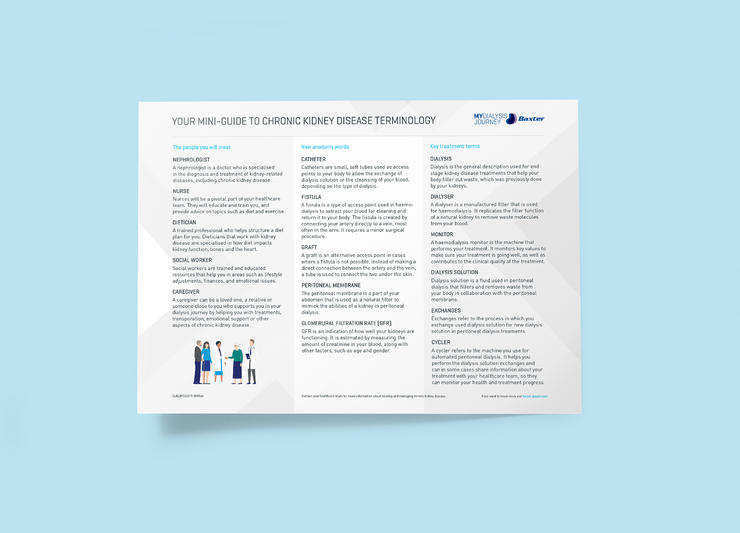Find the Answers You Need
Understanding your condition can help you make the right choices as you move forward in your treatment journey.
Kidneys are vital for your body. Well-functioning kidneys remove waste and excess fluids from your blood, keep important minerals in balance, and help regulate blood pressure, produce red blood cells and vitamin D. In other words, your kidneys make sure your body stays healthy and balanced.
Chronic kidney disease (CKD) is a condition in which your kidneys gradually lose their ability to help your body remove waste and fluid from your blood. When this happens, harmful wastes and fluids begin to build up in your body, making you feel unwell and out of balance. Although chronic kidney disease (CKD) is not curable, treatment can help slow its progression, control symptoms and enable you to live a full life.
Chronic kidney disease (CKD) affects both of your kidneys at the same time. While your body gives you two kidneys to help filter waste, one is not a “back-up” for the other. They work in unison to cleanse your body. When you are diagnosed with chronic kidney disease (CKD), it means that both of your kidneys are affected and cannot properly filter waste and fluid from your body.
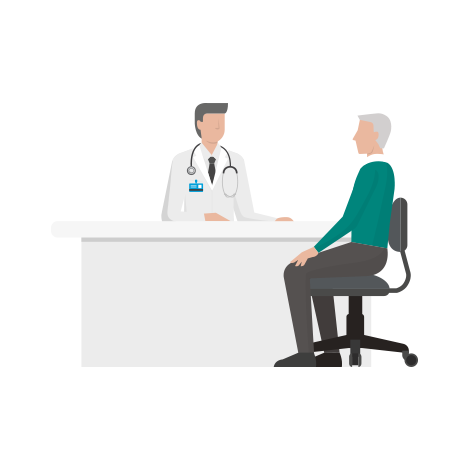
What Causes Chronic Kidney Disease?
In most cases, chronic kidney disease (CKD) is the result of other conditions that have permanently impacted your kidneys over time. For example, diabetes and high blood pressure are the two leading causes of chronic kidney disease (CKD). Other potential causes include polycystic kidney disease and other chronic conditions.
Read more about the Causes of Chronic Kidney Disease here.
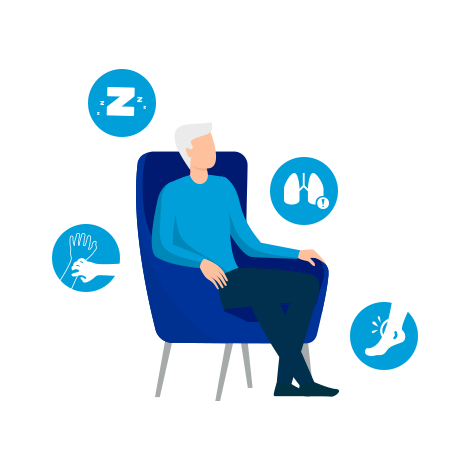
What Symptoms Will I Experience?
As all bodies are unique, symptoms may vary from person to person. You may not notice symptoms until your chronic kidney disease (CKD) is quite advanced. That is why kidney disease is sometimes referred to as a “silent” condition.
Read more about the Symptoms of Chronic Kidney Disease here.
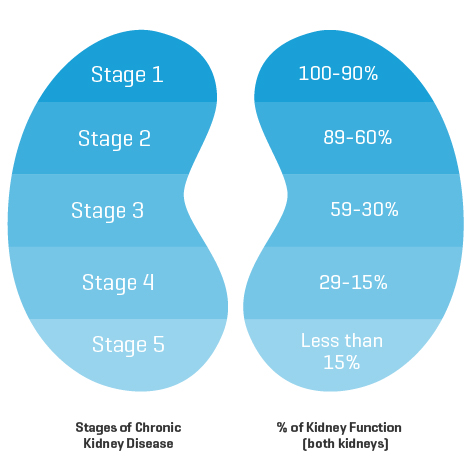
Chronic Kidney Disease (CKD) Stages
Chronic kidney disease (CKD) has 5 different stages, ranging from stage 1 to stage 5. What stage you are in depends on how well your kidneys are currently able to filter your blood.
Read more about CKD Stage 3, CKD Stage 4 and CKD Stage 5 here.
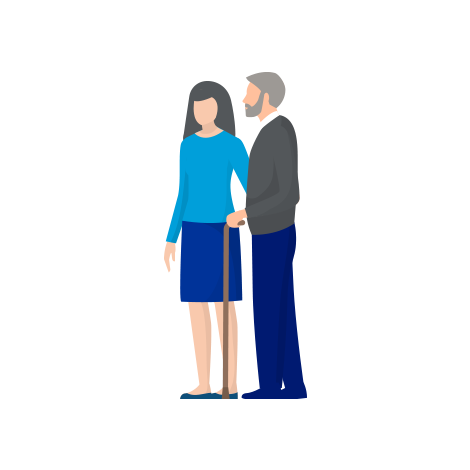
Coping with the Emotional Aspects of Your Diagnosis
Getting diagnosed with a chronic disease is a life changing event. It is normal for you to experience a series of complicated emotions upon receiving this kind of news. Initially, you may feel shocked by unexpected test results or sad and fearful about the idea of living with a chronic illness. The way you cope with these emotions can significantly affect your physical and mental health throughout your treatment journey.
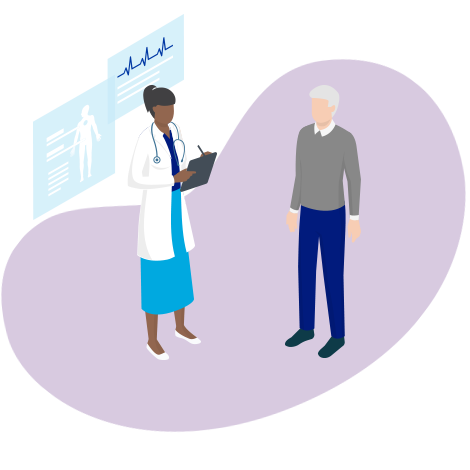
Explore your Options for Treating Chronic Kidney Disease (CKD)
There are a variety of treatment options available for chronic kidney disease (CKD) and it is important that you take an active role in identifying the one that suits you best. The next step in your journey is to prepare yourself to have an informed discussion with your clinician about which treatment is best suited to your physical, emotional and lifestyle needs.

